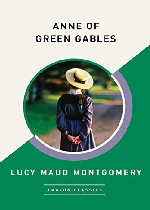
Anne of Green Gables(绿山墙的安妮) 立即阅读
Eleven-year-old orphan Anne Shirley has just arrived at Green Gables, and already her guardians want to send her back. First, she’s not the boy the Cuthberts expected. Second, she talks too much. And even with her generous spirit, the redhead’s a trouble magnet. She gets the neighbor drunk and nearly poisons the pastor! Still, despite a rocky start, the fiery Anne wins over her guardians and her new community. She enjoys life at Green Gables, excels in school, and earns a coveted scholarship. But when tragedy hits, Anne must choose between her dreams and the only home she’s ever known. In this beloved coming-of-age story, Lucy Maud Montgomery drew from her own experiences growing up in Canada during the nineteenth century to introduce generations of readers to one of literature’s most original and inspiring characters.
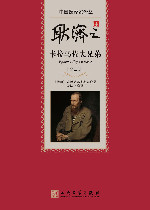
《卡拉马佐夫兄弟》(братъя карамазовы )是俄国作家陀思妥耶夫斯基创作的长篇小说。最初在《俄罗斯信使》杂志上连载了将近两年(自1879年第1期至1880年第11期),并于1881年出版了第一个单行本。该书通过一桩真实的弑父案,描写老卡拉马佐夫同三个儿子即两代人之间的尖锐冲突。老卡拉马佐夫贪婪好色,独占妻子留给儿子们的遗产,并与长子德米特里为一个风流女子争风吃醋。一天黑夜,德米特里疑心自己的情人去跟老头儿幽会,便闯入家园,一怒之下,差点把老头儿砸死。他仓皇逃离后,躲在暗中装病的老卡拉马佐夫的私生子斯麦尔加科夫悄然杀死老爷,造成了一桩震惊全俄的扑朔迷离的血案,从而引发了一连串惊心动魄的事件。作品展示一个错综复杂的社会、家庭、道德和人性的悲剧主题。
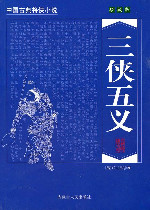
古典长篇侠义公案小说的经典之作,堪称中国武侠小说的开山鼻祖;同时,作为中国第一部具有真正意义的武侠小说,《三侠五义》的版本众多、流传极广,书中脍炙人口的故事对中国近代评书曲艺、武侠小说乃至文学艺术的内容都产生了深远的影响。小说叙写北宋仁宗年间,包拯在众位侠义之士的帮助下,审奇案、平冤狱、以及众侠义除暴安良、行侠仗义的故事。书中塑造了一位铁面无私、不畏权势的清官形象,充分地体现了底层人民的愿望。其中包公平冤狱、“铡庞昱”、“除藩王”等情节,在一定程度上暴露了封建统治的黑暗,表现了人民群众的斗争精神。书中穿插了大量侠客们路见不平、拔刀相助的正义行为,表现出他们侠之大者、为国为民的本质。
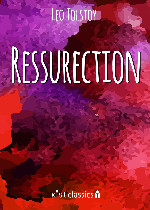
Resurrection (Russian: Воскресение, Voskreseniye), first published in 1899, was the last novel written by Leo Tolstoy. The book is the last of his major long fiction works published in his lifetime. Tolstoy intended the novel as an exposition of the injustice of man-made laws and the hypocrisy of the institutionalized church. The novel also explores the economic philosophy of Georgism, of which Tolstoy had become a very strong advocate towards the end of his life, and explains the theory in detail.
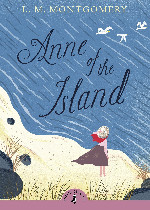
Anne of the Island(爱德华岛的安妮) 立即阅读
Anne Shirley is off to college in this artfully packaged edition of the third book in the Anne of Green Gables series. Anne is finally off to Redmond College! While she’s sad to be leaving Marilla and the twins, she’s excited to finally become a full-fledged BA, and to embark on new adventures with the other Avonlea folks attending Redmond—a group that includes her friend Gilbert Blythe. At Redmond Anne meets Philippa Gordon, a frivolous but charming girl who pulls Anne into the center of the Redmond social scene. As Anne becomes the object of several boys’ affection, she’s faced with numerous proposals she can’t possibly accept. Then Gilbert ruins everything by declaring his own feelings for her, and Anne worries that she’s lost one of her best friends…and possibly so much more. This addition to the renowned Anne of Green Gables series makes a wonderful gift and keepsake.